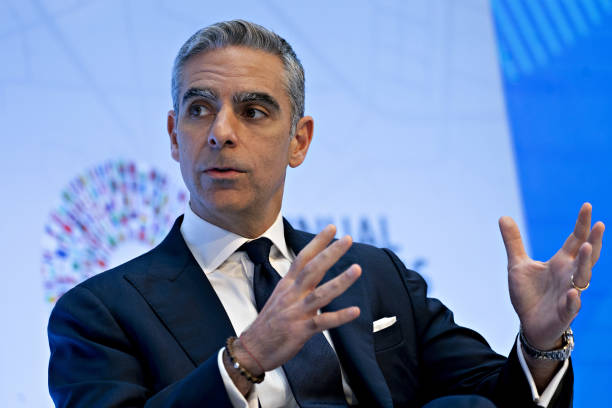David Marcus, former PayPal President and present CEO of the Lightning Network infrastructure company Lightspark, says his firm is aiming to transform Bitcoin (BTC) into a global payment network.
In a recent interview on CNBC’s Squawk Box, Marcus pointed out that while connecting with people is easy through texting and email, sending money across borders remains a challenge due to the lack of a global protocol for money on the internet.
“What we are trying to do is turn Bitcoin into a real payment, global payment network.”
Lightspark aims to convert lightning into a “universal protocol for money on the internet,” akin to how texting is for communication. He said that the currencies transferred over the network would still be fiat currencies.
“We are still at the fax era of global payments and that is what we are attempting to solve.”
“A fragment of a Bitcoin on top of lightning is like a small packet data packet on the internet only for value,” Marcus noted. He added that users can send any currency that they wish to transact – Dollars, Yen or Euros – and receive money of their choice.
Furthermore, Marcus stressed that Bitcoin won’t become a popular payment method.
“Our view is actually that Bitcoin is not the currency that people will use to buy things. But a fragment of a Bitcoin on top of lightning is like a small data packet on the internet only for value.”
He highlighted that Lighting acts “real-time, cash final and low-cost,” making cross-border transactions easier, and more efficient.
Bitcoin Lightning Network – More Challenges
In July, Marcus, who is also the co-creator of Diem crypto, noted that building on Lightning and Bitcoin is about five times more difficult than developing on other protocols.
He said that Lightspark decided to build on the network because of the “unique qualities” Bitcoin provides as the underlying network. Despite the challenges, the company is committed to building on Bitcoin Lightning and doing “whatever it took to realize its fullest potential,” he added.
“Because it’s time for the world to have a universal open protocol for payments.”
David Marcus, former PayPal President and present CEO of the Lightning Network infrastructure company Lightspark, says his firm is aiming to transform Bitcoin (BTC) into a global payment network.
In a recent interview on CNBC’s Squawk Box, Marcus pointed out that while connecting with people is easy through texting and email, sending money across borders remains a challenge due to the lack of a global protocol for money on the internet.
“What we are trying to do is turn Bitcoin into a real payment, global payment network.”
Lightspark aims to convert lightning into a “universal protocol for money on the internet,” akin to how texting is for communication. He said that the currencies transferred over the network would still be fiat currencies.
“We are still at the fax era of global payments and that is what we are attempting to solve.”
“A fragment of a Bitcoin on top of lightning is like a small packet data packet on the internet only for value,” Marcus noted. He added that users can send any currency that they wish to transact – Dollars, Yen or Euros – and receive money of their choice.
Furthermore, Marcus stressed that Bitcoin won’t become a popular payment method.
“Our view is actually that Bitcoin is not the currency that people will use to buy things. But a fragment of a Bitcoin on top of lightning is like a small data packet on the internet only for value.”
He highlighted that Lighting acts “real-time, cash final and low-cost,” making cross-border transactions easier, and more efficient.
Bitcoin Lightning Network – More Challenges
In July, Marcus, who is also the co-creator of Diem crypto, noted that building on Lightning and Bitcoin is about five times more difficult than developing on other protocols.
He said that Lightspark decided to build on the network because of the “unique qualities” Bitcoin provides as the underlying network. Despite the challenges, the company is committed to building on Bitcoin Lightning and doing “whatever it took to realize its fullest potential,” he added.
“Because it’s time for the world to have a universal open protocol for payments.”
